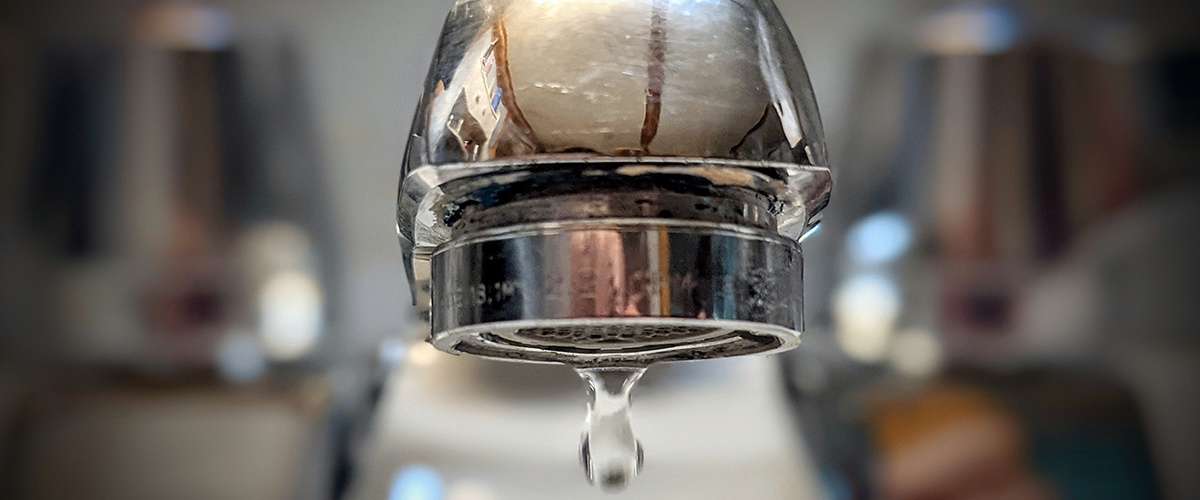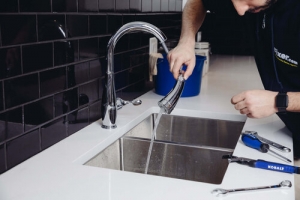Your Causes Behind Dealing with a Malfunctioning Faucet
Your Causes Behind Dealing with a Malfunctioning Faucet
Blog Article
The content which follows relating to Should I Repair or Replace a Leaky Faucet? is definitely compelling. Read it for yourself and see what you think of it.

Trickling faucets might appear like a small hassle, but their influence goes beyond just the aggravation of the audio. From wasting water to sustaining unnecessary economic prices and health and wellness risks, neglecting a dripping faucet can result in numerous consequences. In this short article, we'll explore why it's critical to resolve this usual family concern without delay and effectively.
Wastage of Water
Environmental Influence
Dripping taps contribute significantly to water waste. According to the Epa (EPA), a single tap leaking at one drip per secondly can waste greater than 3,000 gallons of water annually. This not only pressures water resources however likewise impacts communities and wildlife depending on them.
Step-by-Step Guide to Taking Care Of a Dripping Tap
Devices Needed
Before attempting to take care of a dripping faucet, collect the essential devices, consisting of an adjustable wrench, screwdrivers, substitute components (such as washing machines or cartridges), and plumber's tape.
Usual Tap Issues and Their Solutions
Determine the kind of faucet and the details problem causing the drip. Usual issues include damaged washers, rusty valve seats, or faulty O-rings. Describe producer guidelines or on the internet tutorials for step-by-step guidance on repair services.
Financial Costs
Boosted Water Costs
Beyond the ecological impact, leaking taps can blow up water bills significantly. The accumulated wastage with time translates into greater energy expenditures, which can have been avoided with timely repair work.
Prospective Home Damages
Additionally, long term trickling can bring about damage to fixtures and surfaces bordering the tap. Water buildup can create discoloration, rust, and even structural concerns if left neglected, leading to extra fixing costs.
Health and wellness Issues
Mold and Mold Growth
The constant visibility of wetness from a trickling tap creates a perfect atmosphere for mold and mold growth. These fungi not only jeopardize indoor air top quality yet additionally position health and wellness threats, particularly for people with breathing conditions or allergies.
Waterborne Conditions
Stagnant water in dripping faucets can come to be a breeding place for germs and other microorganisms, enhancing the risk of waterborne conditions. Contaminants such as Legionella germs grow in stagnant water, potentially resulting in severe ailments when consumed or breathed in.
Do it yourself vs. Expert Repair service
Benefits and drawbacks of Do It Yourself Repair Service
While some might attempt to repair a dripping tap themselves, do it yourself repair services feature their very own set of challenges. Without correct understanding and tools, do it yourself attempts can exacerbate the concern or result in incomplete fixings, extending the issue.
Advantages of Employing a Professional Plumber
Employing a professional plumber makes sure that the underlying cause of the leaking tap is dealt with properly. Plumbing technicians have the competence and tools to diagnose and repair tap issues effectively, conserving time and decreasing the threat of further damage.
Ecological Duty
Specific Payment to Preservation
Taking duty for fixing dripping faucets aligns with more comprehensive initiatives towards water preservation and environmental sustainability. Every individual's actions jointly make a significant influence on maintaining valuable resources.
Sustainable Living Practices
By focusing on timely repair services and adopting water-saving practices, individuals contribute to lasting living methods that benefit both existing and future generations.
Safety nets
Normal Upkeep Tips
To stop trickling faucets, carry out regular maintenance such as cleansing aerators, inspecting for leakages, and replacing damaged parts promptly. In addition, take into consideration mounting water-saving tools or updating to a lot more reliable components.
Relevance of Prompt Repairs
Dealing with dripping taps as soon as they're discovered stops additional water waste and possible damages, inevitably conserving both water and cash in the long run.
Impact on Property Worth
Perception of Well-Maintained Residential Or Commercial Property
Preserving a building in good condition, consisting of attending to maintenance issues like trickling taps, improves its perceived worth and charm among possible purchasers or renters.
Impact on Resale Value
Characteristics with properly maintained plumbing fixtures, consisting of faucets, command greater resale values in the property market. Dealing with trickling faucets can add to a positive perception throughout residential property inspections and settlements.
Verdict
Dealing with a leaking faucet exceeds plain convenience; it's a vital action towards conserving water, decreasing monetary expenses, and guarding wellness and residential or commercial property. Whether through DIY repair work or expert support, doing something about it to deal with trickling taps is a little yet impactful method to promote responsible stewardship of sources and add to a much healthier, much more sustainable future.
How to Fix a Leaky Faucet: Step-by-Step Repair Guide
A leaky faucet may seem like a simple annoyance, but if it's not fixed promptly, that leak could cost hundreds to potentially thousands. From water damage to mold, mildew, and high water bills, even a tiny leak can be catastrophic if left unattended. Damage like this can even affect the overall value of your home, so it's important to take the right approach for leaky faucet repair. You may need the help of a plumber in some cases, but we've got a few tips you can try on how to fix a leaky faucet before calling the pros.
Four Faucet Types
When you're learning how to fix a leaky faucet, the first step is knowing what kind of faucet you're working with! There are four common types.
Cartridge Faucets
Cartridge faucets come in one- or two-handled varieties. In one-handled cartridge faucets, hot and cold water combines in a single cartridge. In the two-handled versions, hot and cold water are controlled separately and mixed in the faucet.
Ball Faucets
Ball faucets have a single lever you push up and down to adjust the pressure and rotate to change the temperature. A slotted metal ball controls the amount of water allowed into the spout.
Compression Washer Faucets
They're the oldest type of faucet, but they're still used in many homes — especially older ones. Compression faucets have two separate handles that, when turned, raise or lower the washer that seals a water valve. This valve stops water from flowing through the faucet when it is turned off.
Disc Faucets
Disc faucets rarely need to be repaired due to their maintenance-free design. The water flow is controlled by two discs — the upper one raises and lowers against a fixed lower disc, creating a watertight seal. If your disc faucet starts leaking, you may need to replace the seals or clean residue buildup from the inlets.
Fixing a Leaky Faucet
Step 1: Turn Off the Water
Whether you're learning how to fix a leaky bathtub faucet or how to fix a leaky kitchen faucet, always turn off the water supply to your working area when you're fixing a leak. The last thing you want is a flood added to your list of things to fix.
Look for the shutoff valves below your sink or around the tub and turn them clockwise to stop the water flow. If your faucet doesn't have shutoff valves, you may need to turn off the water for the whole house. Check to make sure it's off by turning the faucet on. If nothing comes out, you're ready to start the repair.
Step 2: Take Apart the Faucet
How you disassemble your faucet depends on the type of fixture you have. You can use a flathead screwdriver to remove the caps on top of the handle or handles for cartridge and compression faucets. Inside, you should see handle screws. Unscrew these with a screwdriver to remove the handle.
Disc- and ball-style faucets will typically have an inlet screw near the handle, and removing that will reveal the interior of the faucet.
Detach the Valve Stem
For cartridge- and compression-style faucets, you'll see the inner valve stem or cartridge once you remove the faucet handles. If you have a compression faucet, unscrew the brass valve stem. If you have a cartridge faucet, pull out the cartridge. If your cartridge has been in place for a while, it may require some tools or extra force to remove it due to mineral deposits.
Examine and Replace Parts
Once you've removed the parts, check them out to confirm what needs to be replaced. You may see corroded rubber washers, O-rings, stems, or cartridges. On a ball-style faucet, check the seats and springs for damage.
If you need to repair a leaky disc faucet, check the inlet and seals on the lower disc.
Once you determine what parts must be replaced, visit your local hardware store. Bring the damaged parts with you to ensure you can purchase the correct components to replace them.
Clean Valves and Faucet Cavity
If you've removed a stem or cartridge, you may notice mineral buildup in the faucet's threads. Use white vinegar to clean the valve seat by soaking it for a few minutes, then scrub it away with a soft toothbrush and rinse with warm water. You can also clean the interior of the faucet in the same way.
Reassemble the Faucet
Once your faucet is cleaned and the required parts have been replaced, it's time to reassemble it. Put the pieces back together and slowly turn the water supply back on. Doing this slowly is crucial because too much initial water pressure can damage the new hardware you've just installed.
https://homewarranty.firstam.com/blog/how-to-fix-leaky-faucet

Hopefully you enjoyed reading our excerpt on Why It's Important to Fix Leaky Faucets. Thank you so much for finding the time to read through our piece. Sharing is good. Who knows, you may just be helping someone out. Thank-you for your time invested reading it.
Report this page